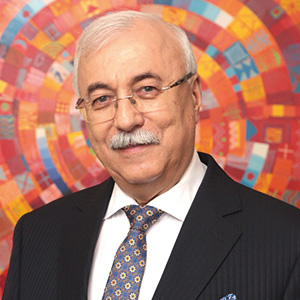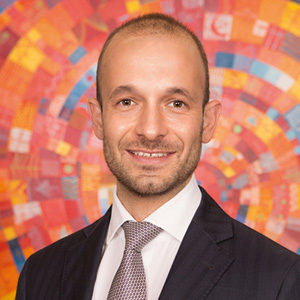Iztok Dstr., 13B, Tintyava Str., Floor 6, 1113 Sofia, Bulgaria
Practice areas: Commercial and company law; state regulations; tax law; real estate; banking, finance and capital markets; litigation and arbitration; IT, media and telecoms; energy and environment; personal data protection; patents and trade marks
Firm profile
Established in 1990, Penkov, Markov & Partners is one of the first law firms in Bulgaria, having nowadays the biggest and most significant client portfolios and being respected both domestically and internationally.
The firm currently has approximately 40 partners and associated members, several external legal consultants, 12 trainees, 12 assistants and staff members. The firm publishes its own newspaper PMP Legal News, circulation 2,200 (published in Bulgarian, English and German languages) which is also available on its website.
Since 1996 PM&P is the exclusive member firm for the jurisdiction of Bulgaria of Lex Mundi – the world’s leading association of independent law firms. PM&P is a member of Lex Mundi and FLI Net and is the first law firm in Bulgaria certified under the ISO 9001:2000 and later re-certified under ISO 9001:2008 and ISO 9001:2015 standards by Bureau Veritas Certification.
For their professionalism the experts from PM&P are frequently engaged not only in legal advice and procedural representation but also in the legislative process (eg, the Commercial Register Act and the New Renewable Energy Sources Act, as well as competition regulations).
In 2019 PM&P was awarded Superbrand of the Year for a fourth time (2007, 2015, 2017) as recognition for exceptional reputation of the trade mark Penkov, Markov & Partners among its current and potential clients, partners and investors.
The team

Vladimir Penkov, chairman and senior partner (vladimir.penkov@penkov-markov.eu)
Mr Penkov has extensive experience in negotiations, research, drafting of legal documents and representation of clients in various areas of commercial law, such as banking and finance, corporate law and commercial contracts, competition, privatisation and foreign investments, investment management, M&A, project finance, public procurement, licensing and know-how agreements, tax law, telecoms, media and IT, energy law and renewable energy sources.

Ivan Markov, partner (ivan.markov@penkov-markov.eu)
Mr Markov has longstanding practical expertise in legal searches, elaboration of legal instruments and representation of clients in different areas of business law such as company law, commercial agreements, banking and finance law, regulatory permissions, insurance law, M&A, concessions, project finance and the securities related thereto.

Nikolay Cvetanov, managing partner (nikolay.cvetanov@penkov-markov.eu)
Mr Cvetanov has significant experience in research, drafting legal documents and representation of clients in the fields of commercial law and banking and finance law, litigation, corporate law, commercial contracts, financial projects and tax law.

Milena Gaidarska, partner (milena.gaidarska@penkov-markov.eu)
Mrs Gaidarska has longstanding practical expertise in legal searches, elaboration of legal instruments and representation of clients in different areas of business law such as: real estate transactions, development and construction, commercialisation of retail, residential and office space, financing and securitisation of real estate projects, M&A, public procurement.

Roman Stoyanov, partner (roman.stoyanov@penkov-markov.eu)
Mr Stoyanov disposes with long-term practical experience in research, preparation of legal documents and representation of clients in different spheres of business law, such as administrative law, commercial and corporate law, pharmaceutical law, customs law, litigation and arbitration, and M&A.
At a glance: Penkov, Markov & Partners
Headcount: 50+ lawyers
Offices: Sofia, Bourgas, Varna, Pleven, Rousse, Stara Zafora
Key clients: ARTEKS Engineering Group; Booking.com; Cable Internet Systems; Coca-Cola; EMCO; EBRD; Heineken; Klett Bulgaria; InnoPharma International BG; Markan Holding




















